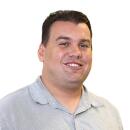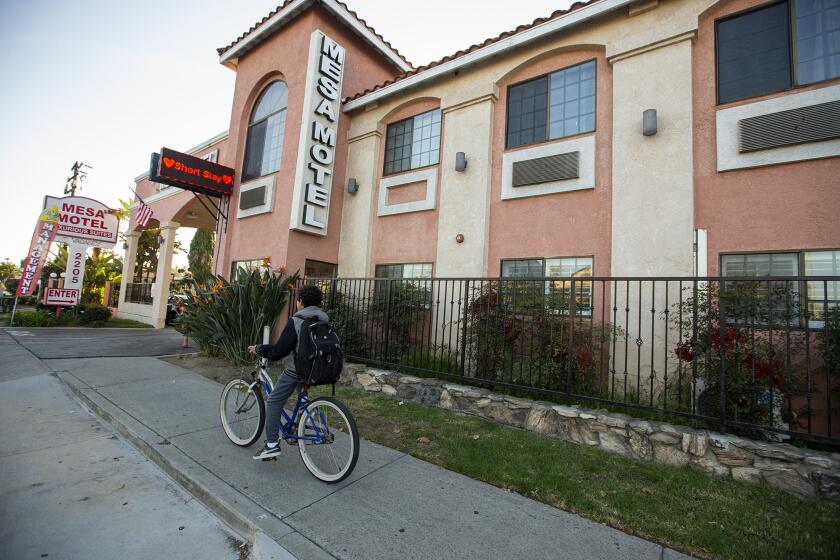University Lab Partners finds formula that ‘ROCKs’ for aspiring life science students
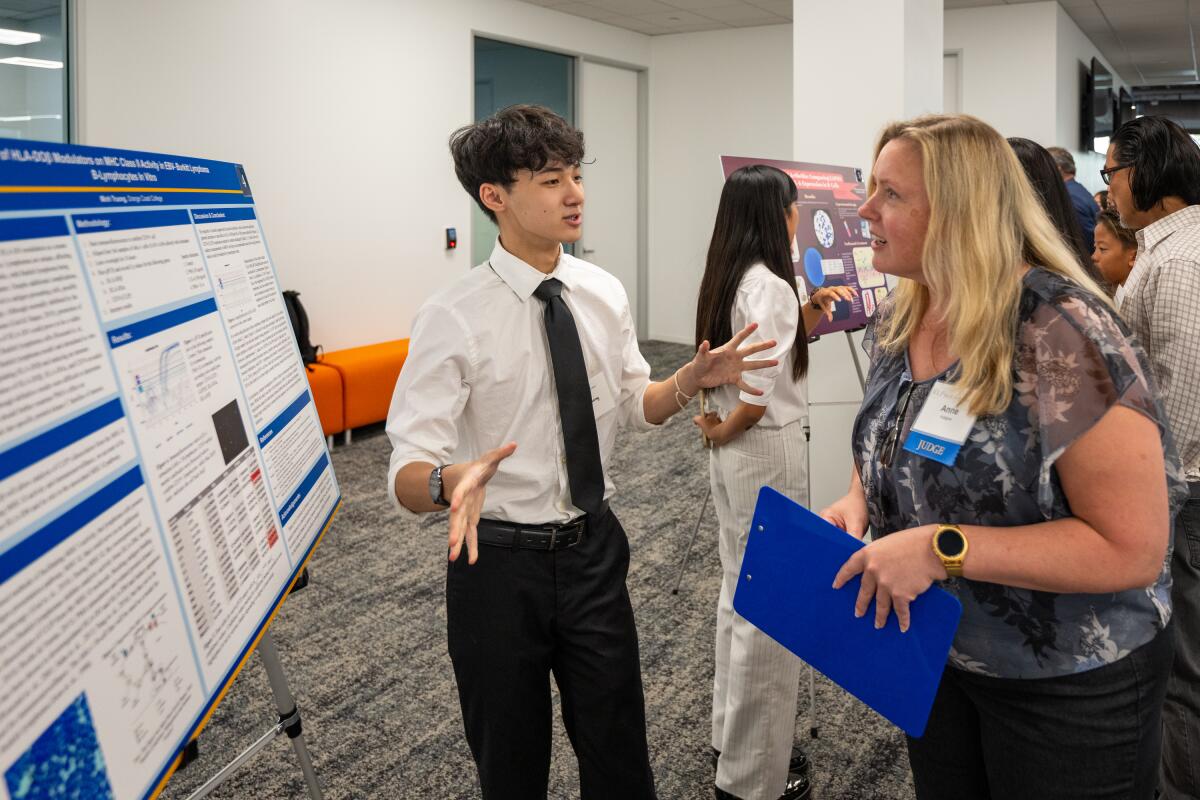
- Share via
University Lab Partners believes in giving students a very hands-on approach to life sciences.
But the Irvine-based nonprofit wet lab and medical technology incubator was born in December 2019, a few months before everything would be “hands off” during the coronavirus pandemic.
Adapting to the environment certainly mattered.
“Our high school outreach was wildly successful during COVID,” University Lab Partners executive director Karin Koch said. “There was nothing available to students, so we decided to develop an online program to really help students with some of their mental health issues and learning about COVID.”
That program, Medical Innovation Research and Entrepreneurship or MIRE for short, has become the flagship program for University Lab Partners. And yet …
“Students and teachers wanted more,” Koch said. “They wanted hands-on technical training.”
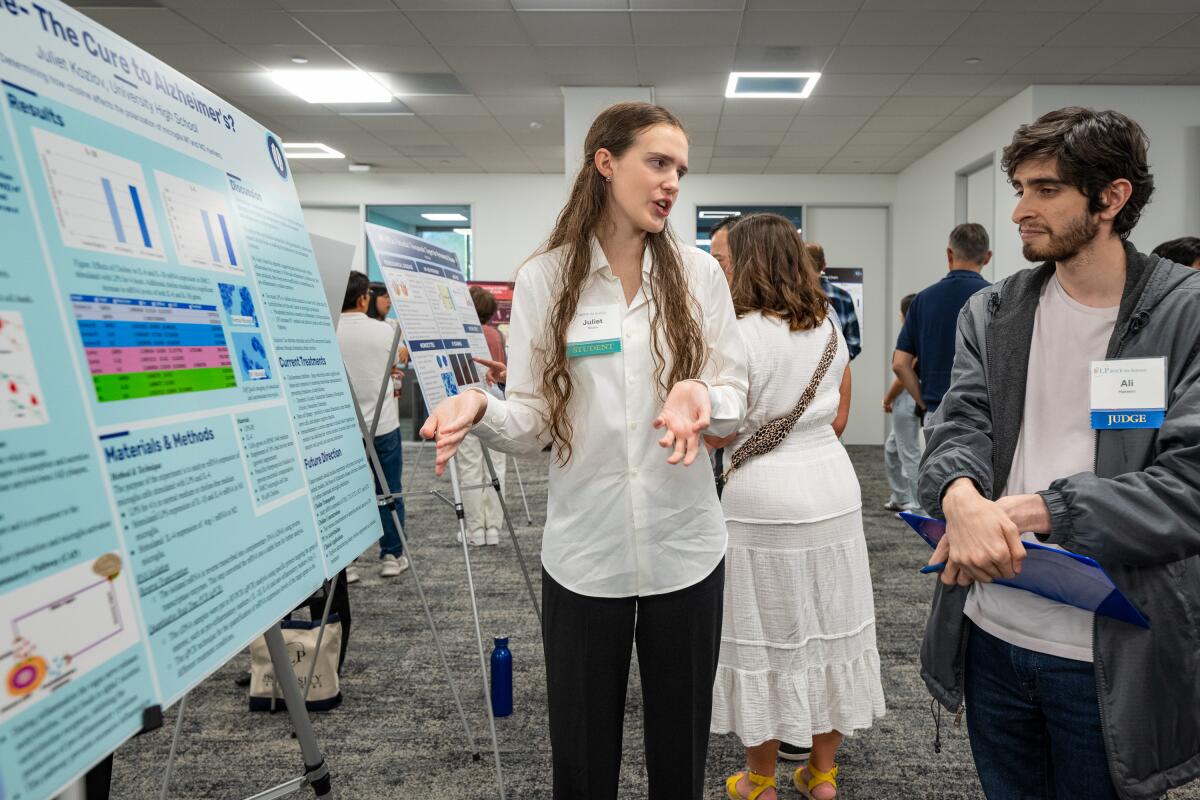
On Aug. 6, ULP held its third annual “ROCK the Science” event at UC Irvine. The event serves as a conclusion to ULP’s Summer Research Program, which featured 50 high school and college students who worked in groups on projects very relevant to current life sciences discussions.
“When students come to us, they’re like, ‘Ooh, I want to study the brain, or, ‘I want to study the liver,’” ULP director of education Samantha Renusch said. “They’re really hyper-focused on whatever they’ve been exposed to so far, such as ailments that their family has encountered.”
Renusch said she had one student this summer who wanted to study B cells, because her uncle had a B-cell lymphoma and was currently being treated with the CAR T-cell therapy.
“That was really exciting to be that catalyst for that student, to better understand a disease that’s really inflicting her family,” she said.
Students spend eight weeks on their project, with two days a week slated for the laboratory. At the end of that time, they make a PowerPoint presentation to the class, and a poster presentation that is made at the ROCK the Science event.
Project judges included several executives from Thermo Fisher Scientific, a biotech company that serves as a key partner for the program by volunteering employees to help as well as supplies. Beckman Foundation chief executive Anne Hultgren and Crescenta Biosciences research scientist Ali Al-Hakeem also served as judges.
Winners were chosen in four cohorts. Theertha Hariharam Arulmozhi of University High School won for her project, “Stimulating Zika-Induced Microcephaly in HMC3 Microglial Cells.” Cameron King of Fairmont Prep, Northwood High’s Olivia Luebcke and Preston Wu of University High also came out on top for their project, “B-Cell Stimulation with LPS and its role in Inflammatory Bowel Disease.”
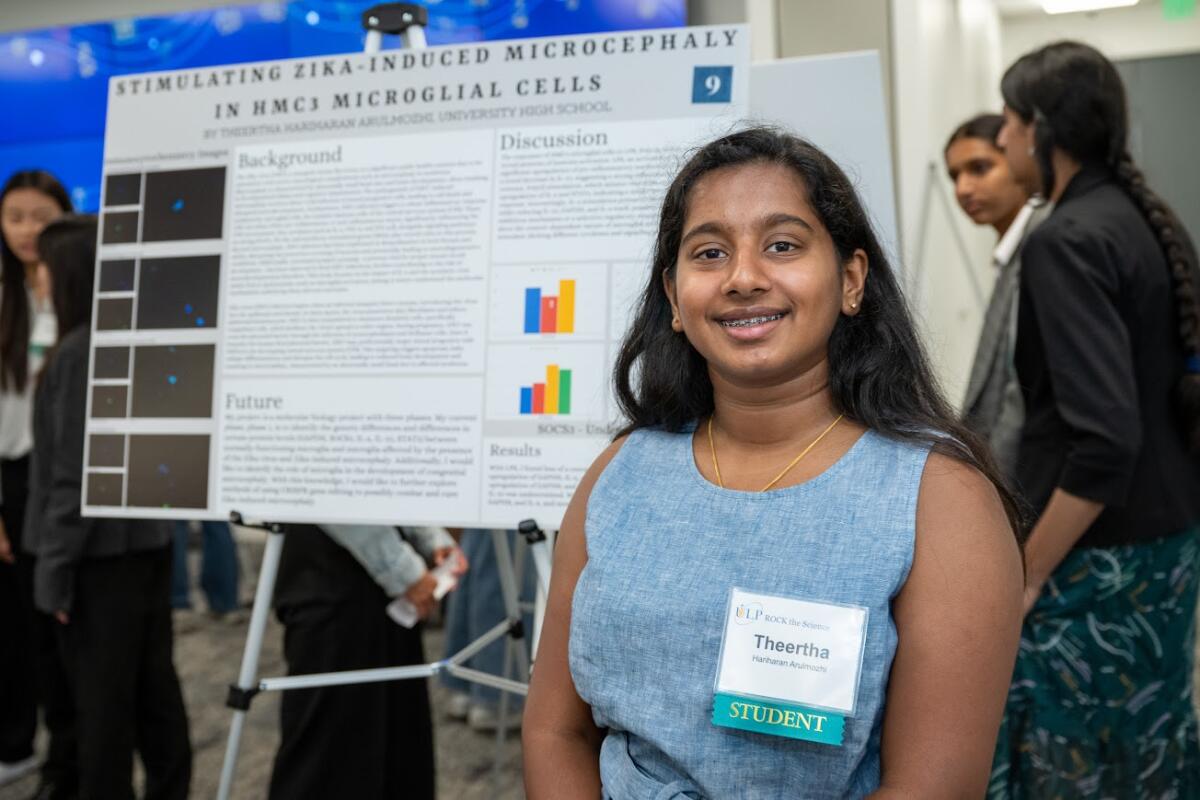
Northwood High’s Angela Su, JSerra High’s Solange Youssef, Bill Nguyen of Westminster High and Andrea Primicias of Irvine Valley College also won for their research on “In Vitro Modeling of LPS-Induced Neuroinflammation: Abnormalities in Gene Expression in Microglia in Alzheimer’s Disease.” And Coastline Regional Occupation Program students Akshara Gobbur, Makenna Chung, Harini Suresh Kumar and Surya Kakarlapudi won for their report on “The Impact of B cells on Type 1 Diabetes Pathogenesis and Management.”
Mia Wang of University High, Tram Nguyen of Westminster High and Isabella Barragan of UC Santa Barbara were the People’s Choice award winner for their product, “Alzheimer’s Disease Model: Using Cholesterol and LPS to influence TNF-Alpha Expression.”
The ROCK the Science event also allowed ULP to honor its four summer interns: Karla Cruz of Tustin High, Davina Pravin of Northwood High, Naiya Sapra of Irvine High and Mia Wang of University High. Each were given $500 toward their career goals.
Renusch, whose background is in both academic science and bio-tech startup companies, has been with ULP for a bit less than two years.
“We’re excited to fill that gap and help students understand the workforce,” she said. “They’re doing real experiments. That’s the really fun part. It’s also very humbling to these students. When any scientist is in the lab, I constantly preach that 90% of the things you do in here are going to fail. You’re really fighting for that 10%. Don’t be discouraged when you have to repeat your experiment several times.”
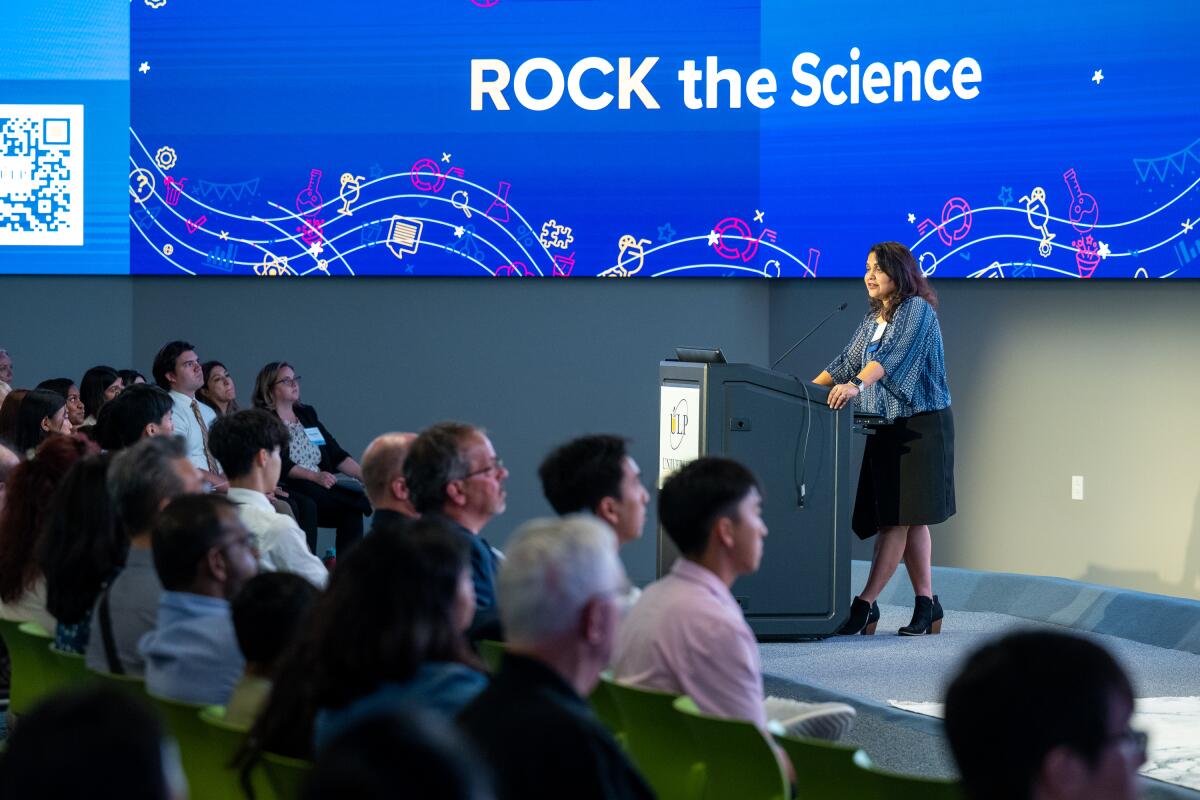
She teared up when she talked about how some of the students really struggled at first.
“They get to ROCK the Science and they’re just so excited,” Renusch said. “What they did is no easy feat. A lot of our judges saw the data that they made and they were like, ‘Wow, I couldn’t make a qPCR experiment work for a whole year in my career.’”
That real-world experience proves invaluable for many. In 2023 alone, ULP’s workforce development programming served 663 students, 87% of whom indicated an interest in pursuing a career in STEM. Additionally, 21% of them stated that they are or will be the first generation in their family to attend college.
Koch has seen the benefits. She said that ULP wants to demonstrate to students that they can love science and have other career paths available besides becoming a doctor or nurse.
“A lot of our bio majors that come to us don’t really know what they want to do as their first job, per se,” Koch said. “I think career exploration and advisory, on top of the hands-on technical skills training and the real world application, is what really sets ULP’s program apart.”
All the latest on Orange County from Orange County.
Get our free TimesOC newsletter.
You may occasionally receive promotional content from the Daily Pilot.
